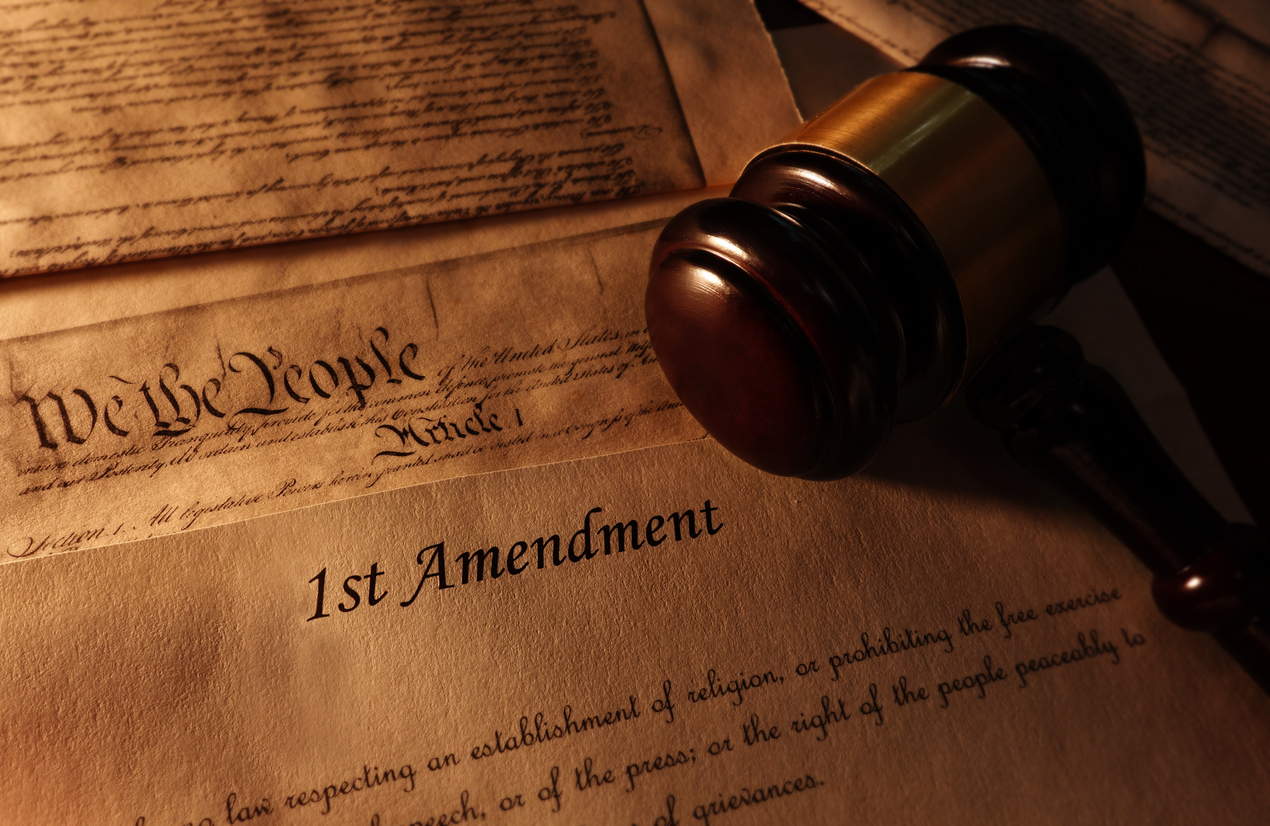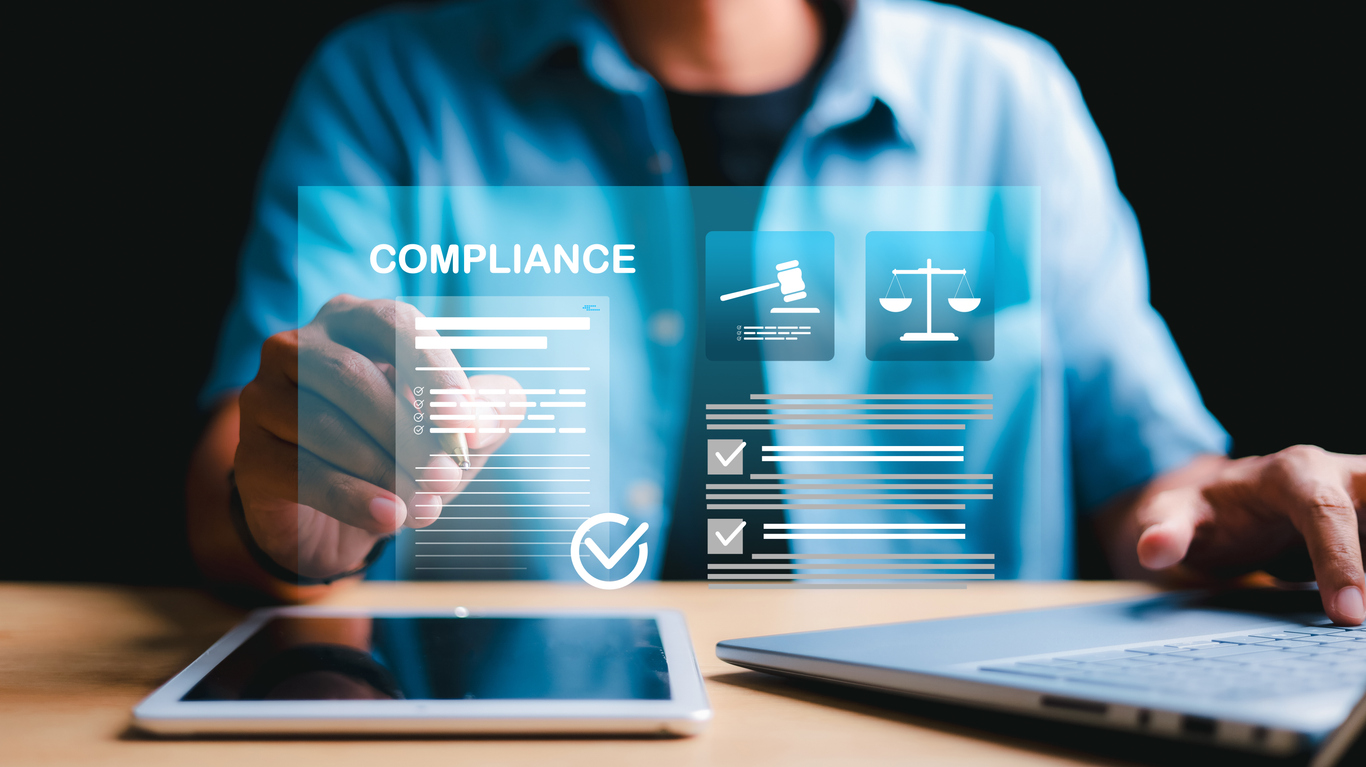Known Unknowns: Faith-Based Organizations and the CARES Act Loan Programs
by John Peiffer (President & General Counsel) and Maggie Beecher (Research Fellow & Staff Attorney)
Bottom Line: The CARES Act contains two loan programs which could potentially impact faith-based organizations. As of this writing, there are significant unanswered questions about the impact acceptance of these funds would have on a recipient's ability to pursue its mission and maintain its religious identity. We are praying that the SBA will issue guidance for religious organizations within the next day or so to favorably address these concerns, so that religious organizations can make an informed decision regarding whether to pursue available government assistance.
Since this situation is rapidly evolving, please be sure to check back frequently for updates!
______________________________________________________________________________________________________________________________
The Coronavirus Aid, Relief, and Economic Security Act, also known as the “CARES” Act, offers financial relief to faith-based nonprofits through the amendment of two existing loan programs. These updated programs include the Paycheck Protection Program (PPP), which modifies the existing rules for SBA 7(a) loans, and the Economic Injury Disaster Loan program (EIDL).*
This post will focus on the Paycheck Protection Program and the unanswered religious liberty concerns the program implicates.
Basics of the Paycheck Protection Program
Highlights of the Paycheck Protection Program include waiver of the personal guarantee requirement, greater availability of funds, and a generous loan forgiveness program. Lenders can begin processing these applications on April 3, 2020; however, due to the uncertainties described below, faith-based organizations may want to think twice before pursuing the PPP.
1. 501(c)(3) Eligibility. Nonprofit organizations that are tax-exempt under Internal Revenue Code § 501(c)(3) (hereafter, “exempt organizations”) including religious organizations, are qualified to participate in the Paycheck Protection Program if they meet the other eligibility criteria.[1]
2. Employee Threshold. Only organizations with 500 or fewer employers are eligible for Paycheck Protection Loans (unless and until we receive other guidance, presumably this calculation is subject to SBA affiliation rules, which could limit the eligibility of dioceses, religious organizations, and other hierarchical religious organizations, even if the religious liberty concerns discussed further below were favorably resolved).
3. Maximum Loan Amount.** The maximum loan amount is set at the lesser of 2.5x average monthly “payroll costs” in the twelve month period before the date the loan is made (i.e., pro rata portion of salary and wages (but only the first $100,000 of each employee’s annual compensation), certain leave payments, health insurance benefits, and state and local payroll taxes) plus the outstanding amount on certain debt obligations, up to $10,000,000. [2]
4. Guarantee and Collateral. The Act waives the personal guarantee and collateral requirements for “Paycheck Protection Program” loans. [3]
5. Allowable Uses. The loans can only be applied to certain “allowable uses.” These uses include key areas of financial pressure including payroll costs, rent, benefits, mortgage interest, utilities, and other interest payments on debt incurred before February 15, 2020. [4] Notably, payroll costs are only covered up to the first $100,000 of an employee’s annual compensation. [5]
6. No Credit Elsewhere Requirement. In the past, Paycheck Protection Loans were only available to organizations which could not qualify for loans from nongovernment lenders. [6] Under the CARES Act this requirement is waived on loans made through June 30, 2020.
7. Interest Rate. If an organization has a balance remaining after applying for loan forgiveness, the maximum maturity (final date of payment) for the balance of the loan is set at two years from the date the borrower submitted the loan forgiveness application, and the interest is set at 0.5%. [7]
8. Deferral. Payments on these loans do not need to start for at least six months from the date on which the loan is funded. [8]
9. Loan Forgiveness. All or a portion of up to eight weeks of these allowable expenses will be forgiven, provided that:
a. The loan funds are applied only to the “allowable uses”,
b. The borrower’s employee headcount is maintained for the 8-week period following origination of the loan, and
c. Employee salaries are not reduced by more than 25% during the same period. [9]
Note that the maximum loan amount, and, therefore, the maximum amount of loan forgiveness, may not fully cover eight weeks of allowable expenses.
10. Applying for Loan Forgiveness. Borrowers must affirmatively apply to the lender for loan forgiveness. [10] The loan forgiveness application must be supported by documentation including records such as payroll tax filings and confirmation of payment on relevant lease or mortgage obligations.
11. Rehiring. Employers that placed employees on furlough due to the Coronavirus crisis may re-hire their employees and still be eligible for loan forgiveness under the PPP. [11] The rehiring must be completed by June 30, 2020.
12. Fee Waivers. Under the CARES Act, fees for both borrowers and lenders are waived through the end of 2020.
13. Covered Period. The PPP (including the loan forgiveness feature) is currently only available on loans made before June 30, 2020. [12]
Religious Liberty Alerts
As most faith-based organizations know, financial assistance from the government should be approached with caution. Although the Senate Small Business Committee published a guidesheet stating that religious organizations are eligible for the Paycheck Protection loan, serious questions remain regarding the extent to which acceptance of the PPP loan funds could limit a religious organization’s ability to pursue its mission and protect its religious identity.
The most basic question that religious organizations need answered is:
Will the SBA issue rules providing a religious exemption to the nondiscrimination requirements generally applicable to recipients of SBA funds?
Currently, the PPP loan application requires organizations to certify that the organization will comply with the SBA’s broad nondiscrimination requirements. [13] For religious organizations, unless religious exemptions to these requirements are published, the regulations could limit the organization’s freedom to pursue its mission and preserve its religious identity in its hiring practices, facilities use, and programming.
Stay up to date by reviewing the Department of Treasury’s Paycheck Protection Program page and its counterpart at the Small Business Administration. This blog, And God’s First, will be updated with new posts as additional information becomes available. However, the reality is that, even if favorable guidance is issued, such guidance may come too late for religious organizations to secure loans under the PPP since the available funds are limited to $349 billion.
Notes:
* Religious organizations interested in an EIDL should be aware that: (1) EIDL fund recipients are likely subject to SBA’s broad nondiscrimination requirements and (2) the EIDL loan application requires a certification that the organization will use the funds for purely secular uses. Characterizing activities as purely secular could have serious theological and legal implications, which could impede the organization’s ability to pursue its mission, so this certification should not be taken lightly.
** The methods the statute proscribes to calculate the maximum loan amount and forgivable loan amount are calculated can lead to surprising results for organizations such as schools which have staffing levels that change throughout the year. These organizations in particular should run the numbers before applying for these loans.
Citations:
All citations are to H.R. 748, the Coronavirus Aid, Relief, and Economic Security Act (CARES Act), unless otherwise indicated.
1. Sec. 1102(a)(2), sections which will become 15 USC § 636(a)(36)(A)(vii) and 15 USC § 636(a)(36)(D)(i).
2. Sec. 1102(a), section which will become 15 USC § 636(a)(36)(E). Organizations which obtained an EIDL before March 27, 2020 may also add the balance on that loan to the 2.5 months of payroll costs to calculate their maximum loan amount. See Sec. 1102(a)(2), which will become 15 USC § 636(a)(36)(E)(i)(I)(bb) and (II)(bb).
3. Sec. 1102(a), section which will become 15 USC § 636(a)(36)(J).
4. Sec. 1102(a), which will become 15 USC § 636(a)(36)(F)(i)
5. Sec. 1102(a)(2), which will become 15 USC § 636(a)(36)(A)(viii)(II)(aa).
6. 15 USC § 636(a)(1)(A); 13 CFR § 120.101.
7. Sec. 1102(a), section which will become 15 USC § 636(a)(36)(K)(ii) and (L)); https://home.treasury.gov/news/press-releases/sm961.
8. Sec. 1102(a), section which will become 15 USC § 636(a)(36)(M)(ii)(I).
9. Sec. 1102(a), which will become 15 USC § 636(a)(36)(F); Sec. 1106(d).
10. Sec. 1106(e).
11. Sec. 1106(d)(5).
12. Sec. 1102(a)(2), section which will become 15 USC § 636(a)(36)(A)(iii).
13. See 13 CFR Part 113.
------------------
John Peiffer serves as President and General Counsel of NLI. He is also CEO of the Busch Firm. John advises for-profit and nonprofit clients on business transactions, entity structures, and corporate formation and governance. He has advised Catholic dioceses, religious orders, private religious schools, and other religious organizations on mission-focused corporate structuring and governance, tax compliance issues, and charitable planning structures. John obtained a B.A. in Classical Studies and English from Santa Clara University, an A.M. in Religious Studies from the University of Chicago Divinity School, and a J.D. from the University of Notre Dame Law School.
Maggie Beecher serves as Research Fellow and Staff Attorney for NLI. Before joining NLI, Maggie was an associate attorney with the Chicago-based law firm Wagenmaker & Oberly, LLC. While there, she provided legal services for the law firm’s wide range of nonprofit organizations and other clients. She helped clients with legal guidance on matters including corporate formation, governance, tax and regulatory compliance, and other business and legal issues. Maggie also has experience with regulatory compliance matters, implementation of U.S. sanctions programs, and cybersecurity risk management. She is particularly interested in the intersection of business and law, and helping nonprofit organizations navigate the complexities involved in that area. Maggie received CALI awards for her work in Constitutional Law and Administrative Law while studying at Chicago Kent Law School and holds an undergraduate degree with honors in Finance and Business from Texas A&M University.
.png)




